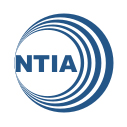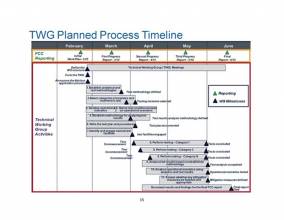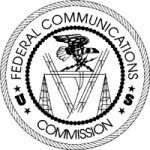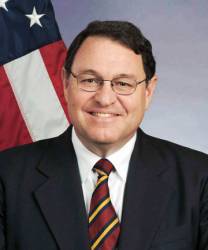
[Updated February 15, 2012] The GPS community received a Valentine’s Day message from U.S. regulators today (Feburary 14, 2012): there is “no practical way” to mitigate potential interference posed by terrestrial transmissions from LightSquared’s proposed wireless broadband network.
[Updated February 15, 2012] The GPS community received a Valentine’s Day message from U.S. regulators today (Feburary 14, 2012): there is “no practical way” to mitigate potential interference posed by terrestrial transmissions from LightSquared’s proposed wireless broadband network.
In a letter to Federal Communications Commission Chairman Julius Genachowski, National Telecommunications and Information Administration (NTIA) head Lawrence Strickling said his agency’s independent evaluation of tests and analysis over the last several months led to this conclusion.
Subsequently, an FCC spokesperson said that the FCC’s International Bureau, which had approved the original LightSquared plan, is proposing to vacate its conditional waiver order permitting rollout of LightSquared’s terrestrial network and "suspend indefinitely" LightSquared’s ancillary terrestrial component (ATC) authority "to an extent consistent with the NTIA letter." A public notice seeking comment on NTIA’s conclusions and the FCC’s proposed actions is expected from the latter agency on Wednesday (February 15, 2012).
"[W"hile GPS equipment developers may be able to mitigate these issues via new technology in the future,” Strickling wrote in his letter, “the time and money required for federal, commercial, and private sectors users to replace” their equipment “cannot support the scheduled deployment of terrestrial services proposed by LightSquared.
GPS advocates quickly endorsed the agencies’ latest announcements. “The FCC has acted appropriately by declaring that its non-interference condition has not been satisfied and that LightSquared will not be permitted to move forward with its proposal to build a nationwide high-powered terrestrial network in the mobile satellite band," said Jim Kirkland, vice president and general counsel of Trimble, a founding member of the Coalition to Save Our GPS.
“The Coalition stands ready to work with the NTIA and the FCC to address the important policy issues relating to longer term use of satellite spectrum and reduction of potential interference to maximize the efficient use of all satellite spectrum," Kirkland add.
The message from the NTIA, which manages the use of RF spectrum by federal agencies and advises the President on telecommunications policy issues, and the FCC’s response may well represent the last nail in the coffin of LightSquared’s attempt to roll out a network. The company’s strategy was based on getting the FCC to reallocate mobile satellite services (MSS) spectrum adjacent to GPS and other GNSS services so that it could used by an high-powered terrestrial network, with up to 40,000 high-powered transmitters known by the bureaucratic designation, ATCs.
In the letter, Strickling said the NTIA reached its conclusions after reviewing a January 13 letter from the National Space-Based Positioning, Navigation, and Timing (PNT) Executive Committee (ExCom) stating that “no practical solutions or mitigation” and recommending that “no additional testing is warranted at this time.”
Tests Results Drove Recommendation
The PNT ExCom and Strickling both cited the results of the latest rounds of testing conducted by the National PNT Engineering Forum (NPEF). These showed that 69 out of 92 general navigation devices were negatively affected by LightSquared’s revised signal plan to temporarily broadcast on 10 megahertz in a lower portion of the MSS band.
Earlier tests had already revealed serious interference to high-precision, wideband GNSS receivers and to widely installed aviation equipment from the lower 10-megahertz plan. The NTIA agreed with the Federal Aviation Administration (FAA) that LightSquared’s various proposals would require changes in aviation operations or replacement of “all GPS-equipped aircraft operating in compliance with approved and internationally harmonized aviation standards,” something that could not be done “in the next few years without impacting to some degree safety-critical GPS functionality.”
Meanwhile, President Obama, whose wireless broadband initiative had created the opportunity and impetus for LightSquared’s effort, backed away from the company’s effort in the proposed 2013 fiscal year budget released yesterday (February 13, 2012).
Section [628]618 of his budget proposal states, “None of the funds made available in this Act may be used by the Federal Communications Commission to remove the conditions imposed on commercial terrestrial operations in the Order and Authorization adopted by the Commission on January 26, 2011 (DA 11-133), or otherwise permit such operations, until the Commission has resolved concerns of potential widespread harmful interference by such commercial terrestrial operations to commercially available Global Positioning System devices.”
In its February 14 statement, the FCC defended its actions, saying, "The Commission clearly stated from the outset that harmful interference to GPS would not be permitted. This is why the Conditional Waiver Order issued by the Commission’s International Bureau prohibited LightSquared from beginning commercial operations unless harmful interference issues were resolved."
In a statement released today, LightSquared said it “remains committed to finding a resolution with the federal government and the GPS industry to resolve all remaining concerns,” although the company “profoundly disagrees with both the NTIA’s and the PNT’s recommendations. . . .”
The company appeared to place its last hopes — futilely, it seems — on the FCC, which issued a provisional order last year that authorized LightSquared’s plan, with the condition that it wouldn’t interfere with GPS. “The final regulatory decision rests now with the FCC, which is the proper authority to resolve this issue,” said LightSquared. “The company fully expects the agency to recognize LightSquared’s legal rights to build its $14 billion, privately financed network.”
A Nudge Toward GPS Receiver Standards
A section late in Strickling’s eight-page letter indicated the NTIA’s inclination to push the interference issue further in the direction of establishing GPS receiver standards that, outside of the aviation community, do not exist.
Strickling noted the PNT ExCom’s stated intent to develop new GPS spectrum interference standards that will “help inform future proposals for non-space commercial uses in the bands adjacent to the GPS signals. . . .” Such efforts, he said, “will serve as the basis to protect such GPS receivers used by civilian and military federal agencies from outside interference, as well as the basis for standards for the development and procurement of GPS receivers to support their various mission requirements.”
Further, he said, the “NTIA will work with federal agencies to review receiver requirements for federal systems, but that will not produce a solution for the majority of devices in the marketplace. Moreover, NTIA recognizes the importance that receiver standards could play as part of a forward-looking model for spectrum management even beyond the immediate issue of GPS.”
And, in an implicit salve to LightSquared and other companies trying to roll out wireless broadband, Strickling added, “[I]n parallel with our efforts with the federal agencies, NTIA urges the FCC, working with all stakeholders, to explore appropriate actions to mitigate against the impact GPS and other receivers may have to prevent the full utilization of spectrum to meet the nation’s broadband needs.
In its statement proposing to vacate its order, the FCC responded in kind, observing, “This proceeding has revealed challenges to maximizing the opportunities of mobile broadband for our economy. In particular, it has revealed challenges to removing regulatory barriers on spectrum that restrict use of that spectrum for mobile broadband. This includes receivers that pick up signals from spectrum uses in neighboring bands. There are very substantial costs to our economy and to consumers of preventing the use of this and other spectrum for mobile broadband."
“Congress, the FCC, other federal agencies, and private sector stakeholders must work together in a concerted effort to reduce regulatory barriers and free up spectrum for mobile broadband," the FCC statement continued. "Part of this effort should address receiver performance to help ensure the most efficient use of all spectrum to drive our economy and best serve American consumers.
Those sentiments were in line with a February 7 LightSquared request for the FCC to develop “receiver reliability standards for unlicensed GPS devices to ensure they perform reliably and take into account licensed users in nearby bands.”





